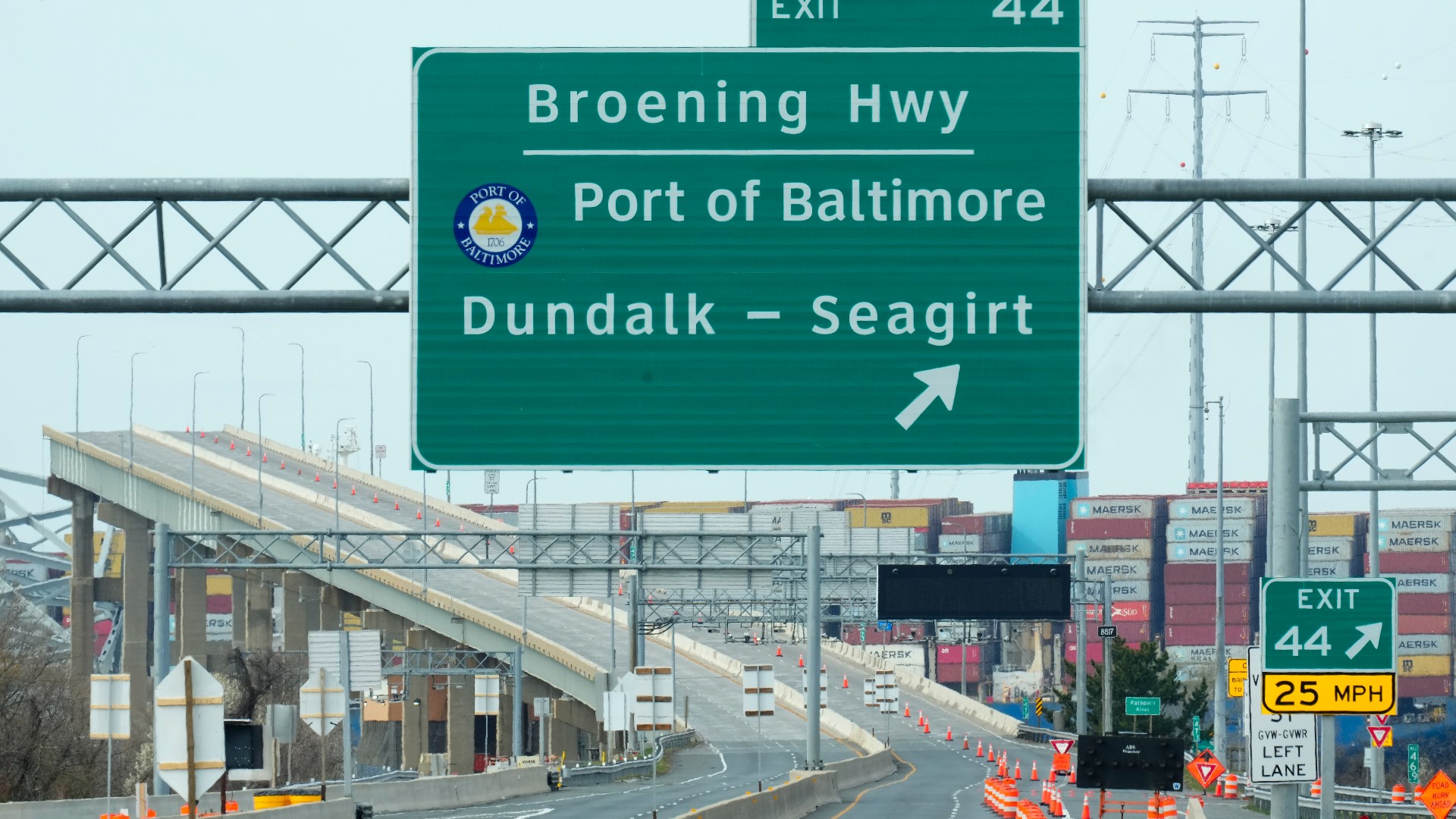BALTIMORE — The Port of Baltimore is essential to industries in Maryland and Pennsylvania. It handles the most farm and construction equipment of any port in the country and it’s the biggest importer of sugar and gypsum.
After the Francis Scott Key Bridge collapsed Tuesday, there's a scramble to figure out what to do with the cargo waiting to be delivered.
Business is at a near standstill at the Port of Baltimore following the crash. All the cargo has to go somewhere else.
"Now that the inner harbor is sealed, there’s no way to process inbound freight that was supposed to go to Baltimore," said Paul Brashier, vice president of drayage and intermodal at ITS Logistics.
"The most immediate concerns right now are the ships that are stuck in the port," added Paul Baris, vice president of consulting at enVista.
Many of those ships were likely carrying automobiles. The Port of Baltimore has handled more cars and trucks than any port in the country in each of the last 13 years.
"Baltimore uses a process called roll on, roll off where the vehicles are driven off the container ships," Baris said. "Not every port can do that."
FOX43 asked Baris how long it could take to get all of these vehicles where they need to go.
"Thirty days, 45 days," Baris responded. "It’s not going to happen overnight just because there are not enough trucks."
The Pennsylvania Automotive Association told FOX43 it’s too early to tell how the bridge collapse will impact the industry.
The crash is already diverting truck traffic closer to Baltimore and could cause delays all the way to the Washington D.C. metro.
"The Francis Scott Key Bridge is the only bridge in the Baltimore area, so all of the hazardous trucks and containers now have to be rerouted totally around the City of Baltimore because they can’t go through the tunnels," Baris said. "That adds anywhere from 40 to 50 miles of additional travel time."
The shutdown at the port could impact businesses in Pennsylvania.
"Every year, about 40 million tons of goods come into York County by way of Maryland," said Kevin Schreiber, president of York County Economic Alliance. "That’s typically up and down I-83, I-95 with the vast majority coming through the Port of Baltimore. Every year we send about 38 million tons."
The Port of Baltimore is the second nation’s highest exporter of coal, some of it coming from the Commonwealth.
"The coal business could also soften because it’s very expensive to now ship that over ground," Baris said.
Major railroad company CSX is warning customers to expect shipment delays but said it’s dispatching more trains to coal terminals.
The port shutting down is also impacting thousands of jobs.
Baris said there’s almost $10 million of daily payroll at the port that could disappear. He added the severity of the economic impact will depend on how long it takes to clear the bridge from the Patapsco River and open the port again.

